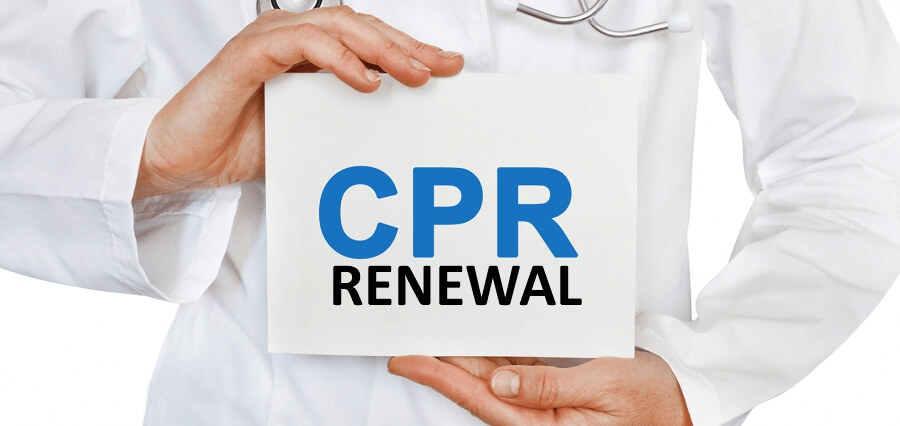Running a business includes a great deal of risk and responsibility: you need to file your taxes properly, ensure you have the proper insurance and workers’ compensation, and keep your licenses in good order so you’re not operating without the correct documentation.
Amidst all this, you may not consider the significance of a CPR renewal, especially as it is generally not legally required for anyone outside of first responders and those in the medical or wellness industry. You might not know that CPR certifications expire every two years, so any previous training you had must be regularly revisited to ensure that you can intervene in an emergency. On top of that, most business organizations require that at least one employee in the office has a valid CPR certificate; that is why you should always look after the renewal opportunity.
However, it’s essential that business owners be able to protect themselves against lawsuits – as well as help those who may need service – through getting their CPR recertification online. These easy, affordable, and flexible certifications can be done on your own time, perfect for busy entrepreneurs who can’t fit an in-person class into their schedule. As we’ll discuss today, it’s more important than you think to have your first aid certification up to date.
Emergencies On Your Premises Are Bad for Business
The most obvious reason you should get your CPR renewal is your reputation as a business owner. Even if someone having a heart attack in your restaurant is not your fault, the potential PR fallout would be – especially if it’s discovered that you did not make every attempt to assist the person.
There’s a large difference in the public’s mind between someone who simply sat idly by while someone suffered cardiac arrest and someone who immediately jumped into action and did everything they could to provide care. This is also true if someone chokes in your restaurant, has an allergic reaction, or suffers a seizure or stroke while visiting your establishment.
Public perception is everything to any business – and, unfortunately, the public is not always rational about how they perceive a situation. If there is a severe medical incident at your business and it’s not made clear that you and your staff worked to provide care, you may suffer a loss of reputation and, thus, a downturn in business. On the other hand, if you heroically jumped in and did everything possible while your employees called for help, you’ll be seen as a responsible business owner, and you’ll experience a great boost to your company’s reputation.
You May Be Held Liable If You Did Not Provide Care During an Emergency
Premises liability can be very complicated, as there are numerous circumstances where you’re not expected to intervene; however, you must be aware of your responsibilities towards patrons to protect yourself from lawsuits.
For proprietors of businesses like bed and breakfasts, where your guests may be spending extended time on your premises, you have a duty of care to your patrons. While the average bystander is not obligated to intervene when someone else has a medical emergency, you are considered to have a “special relationship” with a customer.
This includes any “possessors of land who hold it open to the public;” feasibly, this would include any customer-facing business, including places like bakeries or photography studios, but in practice, it’s generally only held against transportation companies and hospitality businesses. You must be able to provide first aid to the best of your ability and provide your injured patron with prompt medical treatment by calling 911 as soon as possible.
While General Liability Insurance Will Help, It Won’t Assist in a Loss of Trust With Employees
Of course, you likely carry some form of business insurance, which can cover legal expenses should you be sued over premises liability. However, there is something that, just like a loss of reputation, can’t be fixed by money alone: a loss of employee trust.
As a business owner, you are the leader of the organization, and you set the standard for how employees should act while they’re working for you. There are many things that make a great leader, but one of the most important – and underappreciated – is a willingness to go above and beyond, as well as courage and a cool head in emergency situations. You want your staff to see you as capable, empathetic, and logical, capable of reacting quickly to anything that may come your way, including medical emergencies.
It’s been said that trust is one of the hardest things to gain and one of the easiest things to lose. Showing yourself as someone who can’t help when things go catastrophically awry may make employees believe that you don’t care about their well-being or that you are incapable of making tough decisions. In contrast, showing great resolve and practical application of first-aid tactics will earn their respect and help them feel that your business is a safe place to work – that they’re in good hands.
Running a business is challenging enough without dealing with reputational damage, lawsuits, and resentful employees, which is why it makes sense to spend a few hours receiving your CPR renewal online. The entire course can be completed in less than 20 hours and costs less than $60, but it is incredibly beneficial to your peace of mind, knowing you can handle anything that may occur in your business. Accidents happen, and emergencies can’t be predicted, but your response can – and you want to be known as a leader who goes above and beyond no matter what.
Read More Click Here


